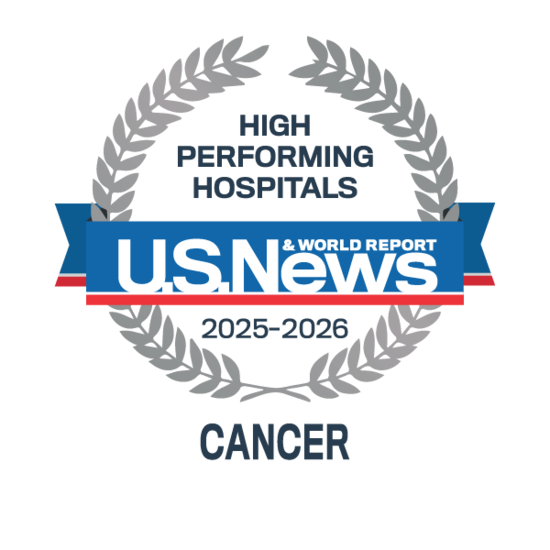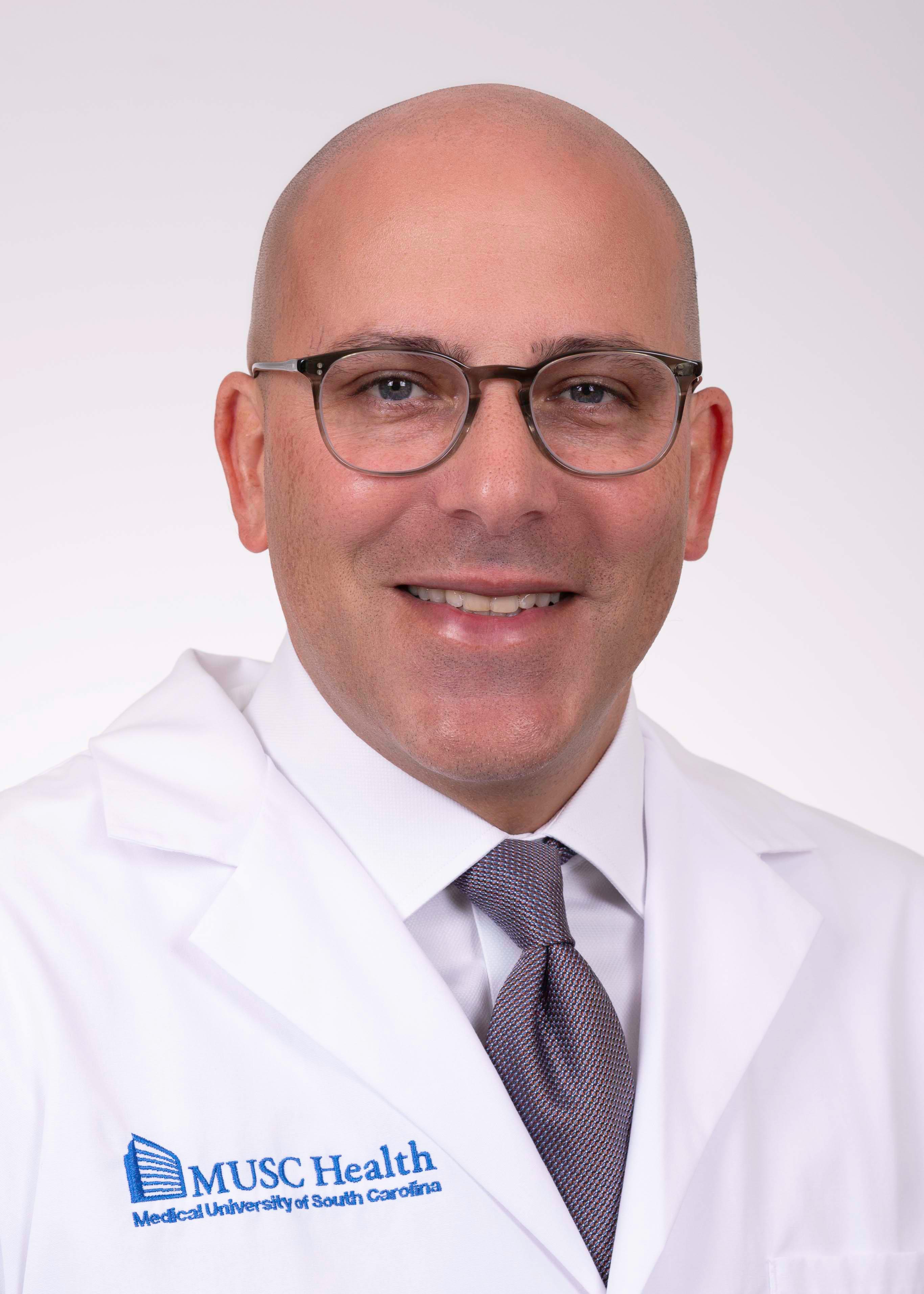
Toros Dincman, MD, PhD
- Gastrointestinal Cancer
- Medical Oncology
- Prostate Cancer
- Charleston, SC
Across the globe, liver cancer is the third most common cause of cancer death. This cancer is becoming more common. Some researchers predict that rates of liver cancer could increase by 50% from 2020 to 2040.
In the U.S., liver cancer is the sixth most common cause of cancer death, and rates are increasing here, too. The most common type of primary liver cancer (cancer that starts in the liver) is hepatocellular cancer.
Liver cancer is difficult to treat, so it’s important to seek out a team of specialists who can provide the most up-to-date, individualized treatment. At MUSC Hollings Cancer Center, our team includes medical oncologists, radiation oncologists, surgical oncologists, transplant specialists, pathologists, nurse navigators, dietitians and other liver cancer specialists who all work together to provide you with the best possible care.
We also offer a next-day access program for people with newly diagnosed, non-metastatic liver cancer so that you can begin discussing a treatment plan with a surgeon right away.
MUSC Hollings Cancer Center has been recognized as High Performing in Cancer care in the 2025–2026 U.S. News & World Report rankings. This honor underscores our advanced expertise and dedication to providing patients with innovative treatments and personalized care.

Newly Diagnosed or Non-Metastatic
If you have newly diagnosed, non-metastatic liver cancer, schedule an appointment by calling 843-985-7262.
Metastatic, Established or Second Opinions
If you have metastatic liver cancer, are an established patient, or want a second opinion, schedule an appointment by calling 843-792-9300.
There are different types of liver cancer but the most common is hepatocellular carcinoma. Another type is intrahepatic bile duct cancer, or cancer in the bile ducts that are inside the liver. There are also benign tumors. Benign tumors do not spread into other parts of the body in the way that cancerous tumors do, but they can grow large enough to be painful.
Sometimes, other types of cancer spread, or metastasize, to the liver. You might hear this referred to as secondary liver cancer but the cancer is still the first type of cancer — in other words, breast cancer that has spread to the liver is still breast cancer and colon cancer that has spread to the liver is still colon cancer.
Surgery to remove the metastatic disease to the liver can sometimes improve survival or result in cures. If you have a cancer that spread to your liver from someplace else, we would be happy to evaluate you to see if you are a candidate for liver surgery.
Have more questions about liver cancer? Check out our answers to common questions.
Often, liver cancer doesn’t cause symptoms at first. And one of the things that makes it difficult to diagnose is that symptoms are very similar to other liver problems that are much more common. Talk to your doctor about any of these symptoms:
Our goal is to provide you the best, most individualized options for the cancer that you have. Our multidisciplinary team meets to review cases and design an appropriate treatment plan that takes into account the type and stage of cancer and your overall health. Treatment options can include:
Surgery, also called resection. Whenever possible, our teams will use minimally invasive methods, like robotic surgery or laparoscopic surgery. Minimally invasive surgeries require smaller incisions (cuts), which usually means a faster recovery time and less pain.
Systemic therapy, including chemotherapy, targeted therapy and immunotherapy.
Liver-directed therapy, including embolization, hepatic arterial infusion (chemotherapy delivered directly to the liver), radiation, or bland embolization (removing the blood supply to the tumor).
Transplant. Our team works closely with the MUSC Health liver transplant team to assess when this is a good option.
To refer a liver cancer patient to Hollings, please call nurse coordinator Kelsey Cook at 843-985-7262.
Our nurse navigators are an integral part of cancer care. They can help you to navigate through the health system, organize your appointments, and access additional resources. Gastrointestinal cancer nurse navigator Anthony DeMeo, MSN, RN, will help you understand what to expect during treatment and answer questions you may have.
Clinical trials are how we know which treatments work; results from clinical trials determine what becomes the standard of care across cancer centers. As a National Cancer Institute-designated cancer center, Hollings takes an active part in clinical trials to continue advancing knowledge of cancer care.
Why might you participate in a clinical trial?
First, there are different types of trials. Some test a new medication. Some might look at whether the order of treatments (surgery, chemotherapy, radiation) makes a difference. Others look at ways to improve quality of life. Your doctor may suggest a clinical trial believing that you could benefit from it. Because therapies in clinical trials have the potential to become the standard of care in the future, you could possibly have earlier access to a new treatment. You will also be helping future cancer patients, who will benefit from the information created during the trial. In some clinical trials you will receive at least the standard of care, and possibly something extra, while in others you will receive a new drug that is being tested in your type of cancer. Your doctor and the research team will help to guide you.
Our clinical trials page includes more information about trials as well as some questions for you to ask if you are considering a trial. You can also review our current liver cancer clinical trials and gastrointestinal cancer clinical trials.
Liver cancer is a cancer of growing concern worldwide. Scientists at Hollings are actively involved in researching solutions. Some of the research happening here includes:



The specific risk factors for liver cancer are changing as Americans’ lifestyles and habits change. What all of these risk factors have in common is that they cause chronic, or long-term, liver injury, whether the chronic liver injury is a result of alcohol use, previous chemotherapy, viral infection or some other factor.
In the past, the biggest risk factors for liver cancer were long-term, untreated hepatitis B or hepatitis C infections.
The risk factor that is increasing is a condition called metabolic dysfunction-associated steatotic liver disease (MASLD) and especially its more severe form, metabolic dysfunction-associated steatohepatitis (MASH).
MASLD means that fat has started accumulating in the liver. Some estimates are that almost a third of Americans have MASLD. Some risk factors for MASLD include obesity, high cholesterol, type 2 diabetes and high blood pressure.
Risk factors for liver cancer:
MUSC Health’s Tobacco Treatment Program provides education and cessation resources for South Carolina.
The Center for Drug & Alcohol Programs is one of the nation's best programs for the treatment of alcohol and substance abuse.
Learn about how programs offered by the Weight Management Center can help you or your loved ones reach weight loss goals.
Have you or a loved one received a liver cancer diagnosis? You probably have a lot of questions. There’s a lot of information to take in after a cancer diagnosis. Your doctor can answer questions specific to your care, but we have compiled a list of some of the most common questions for your reference below.
How fast liver cancer spreads depends on the type of cancer. Once you have been diagnosed and doctors have reviewed your case, our doctors will be able to speak with you about your specific situation.
With today's modern technologies and treatments, many of the cancers that were previously considered incurable are now potentially curable. Also, by working with the Hepatology team, many cases of chronic liver disease can be controlled for a long time. Your health care provider can give you more information.
Anyone can get liver cancer, but most cases are in people with chronic liver disease.
A liver transplant is possible – about 11% of liver transplants in the U.S. are in people with liver cancer. The guidelines for who is eligible for liver transplants are expanding to include more people, so a multidisciplinary team will evaluate each case to see if a transplant is the right option. Our team at Hollings works closely with the MUSC Health liver transplant team, a highly-regarded team with excellent outcomes.